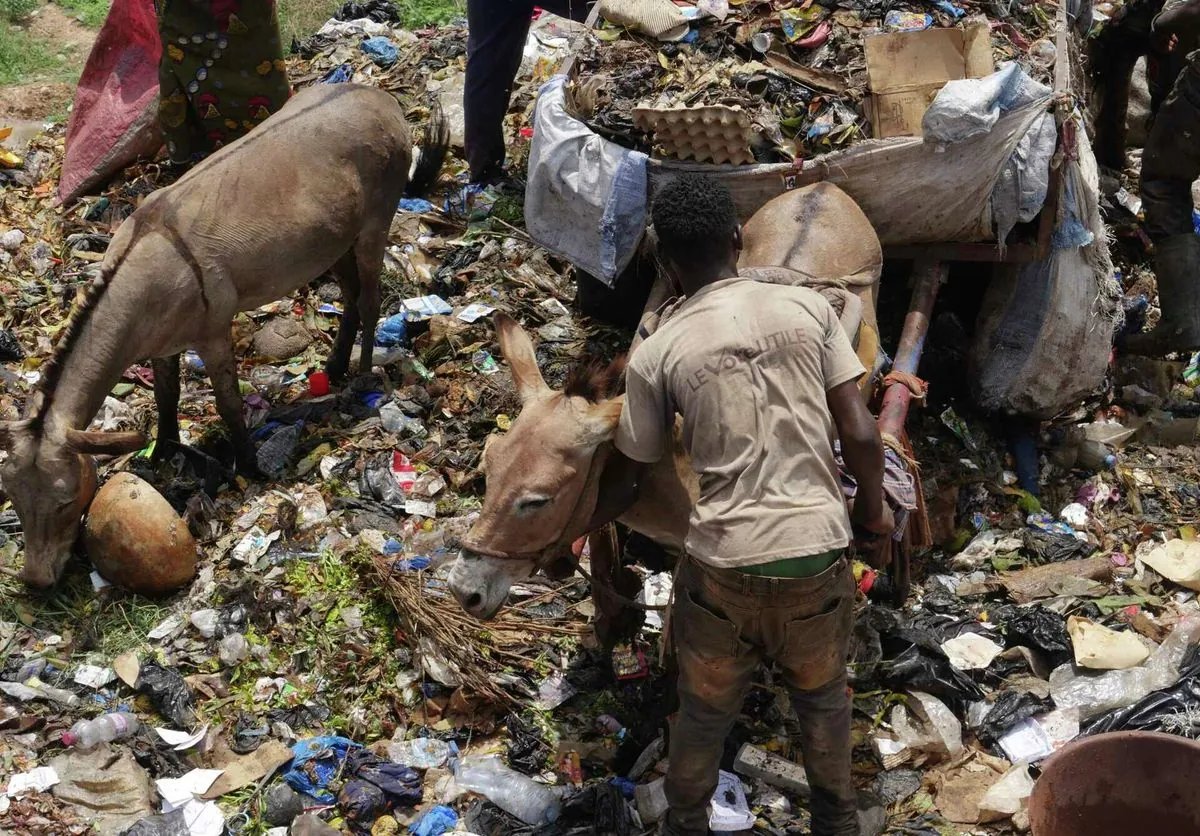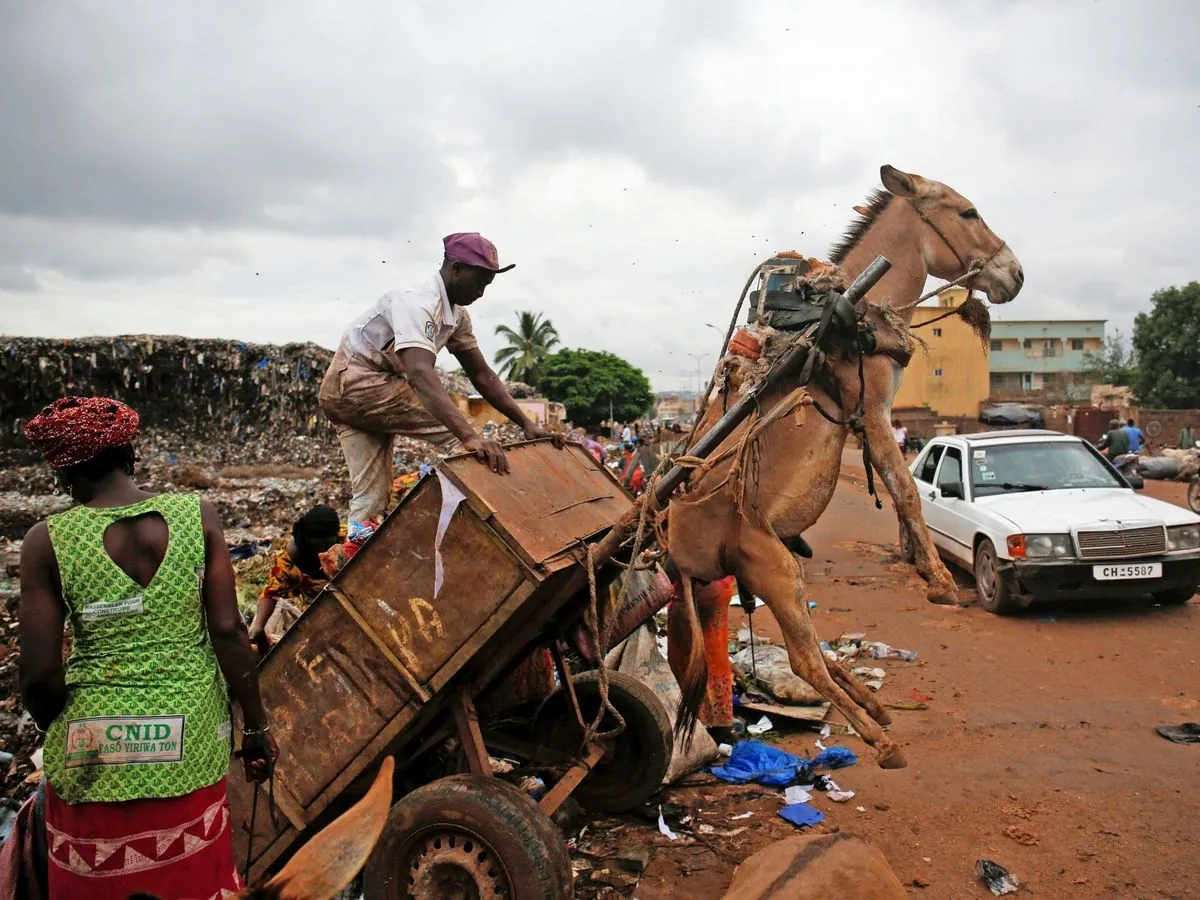Bamako's Waste Woes: Donkey Carts Fill Gap in Mali's Capital
Bamako, Mali's capital, grapples with waste management as population surges. Residents turn to donkey-drawn carts for garbage collection, highlighting infrastructure challenges and sparking debates on urban solutions.

In Bamako, Mali's bustling capital, a unique solution has emerged to address the city's mounting waste management crisis. As the population has swelled to over 3 million in recent years, traditional garbage collection methods have struggled to keep pace. In response, residents are increasingly turning to an unconventional yet effective approach: donkey-drawn carts.
Yacouba Diallo, a local waste collector, exemplifies this innovative spirit. With a touch of humor, he's named his two cart-pulling donkeys after his cousins, Keita and Kanté. Diallo's work, while challenging, provides a vital service to the community and offers economic opportunities in a country grappling with high unemployment rates.
The advantages of donkey carts in Bamako's congested streets are clear. These nimble vehicles can navigate narrow alleys and poorly maintained roads that larger trucks cannot access. Additionally, the lower investment cost compared to motorized vehicles makes this option attractive to many young entrepreneurs from rural areas seeking employment in the city.

However, this solution is not without its critics. Animal welfare organizations, such as SPANA, express concerns about the working conditions of the donkeys. Amadou Doumbia, a representative of the nonprofit, advocates for replacing donkey carts with trucks to alleviate the burden on these animals.
The waste management challenges in Bamako extend beyond collection. Bamadou Sidibé, a waste management consultant, points out that the city lacks proper transfer sites and landfills meeting required standards. This infrastructural deficit complicates the entire waste disposal process.
In 2022, the World Bank approved a $250 million project to address these issues. The initiative aims to rehabilitate an existing landfill to international standards and construct a new one within the city. While the project is set to run until 2028, the start date for construction remains uncertain.
Local authorities, including Adama Kanté, a deputy mayor, acknowledge the waste problem but attribute it partly to residents' behavior. Kanté argues that many citizens are unwilling to pay for proper waste disposal services. Some residents, like Boureima Traoré, confirm this observation, noting that some people resort to dumping garbage into waterways during the rainy season to avoid collection fees.
The accumulation of garbage in Bamako has led to the formation of large waste mounds throughout the city. These sites attract scavengers searching for reusable or sellable items, despite the health and safety risks involved. The dangers associated with such practices were tragically highlighted earlier this month when a landfill collapse in Uganda's capital resulted in at least 30 fatalities.
As Bamako continues to grow, finding sustainable solutions to its waste management challenges remains crucial. The city's experience underscores the complex interplay between rapid urbanization, infrastructure development, and environmental concerns faced by many developing urban centers across Africa.
"It requires less investment than a truck."
This situation in Bamako reflects broader issues of urban development and waste management in rapidly growing African cities. As Mali works to address these challenges, the innovative use of donkey carts serves as a reminder of the resourcefulness of local communities in the face of urban difficulties.


































